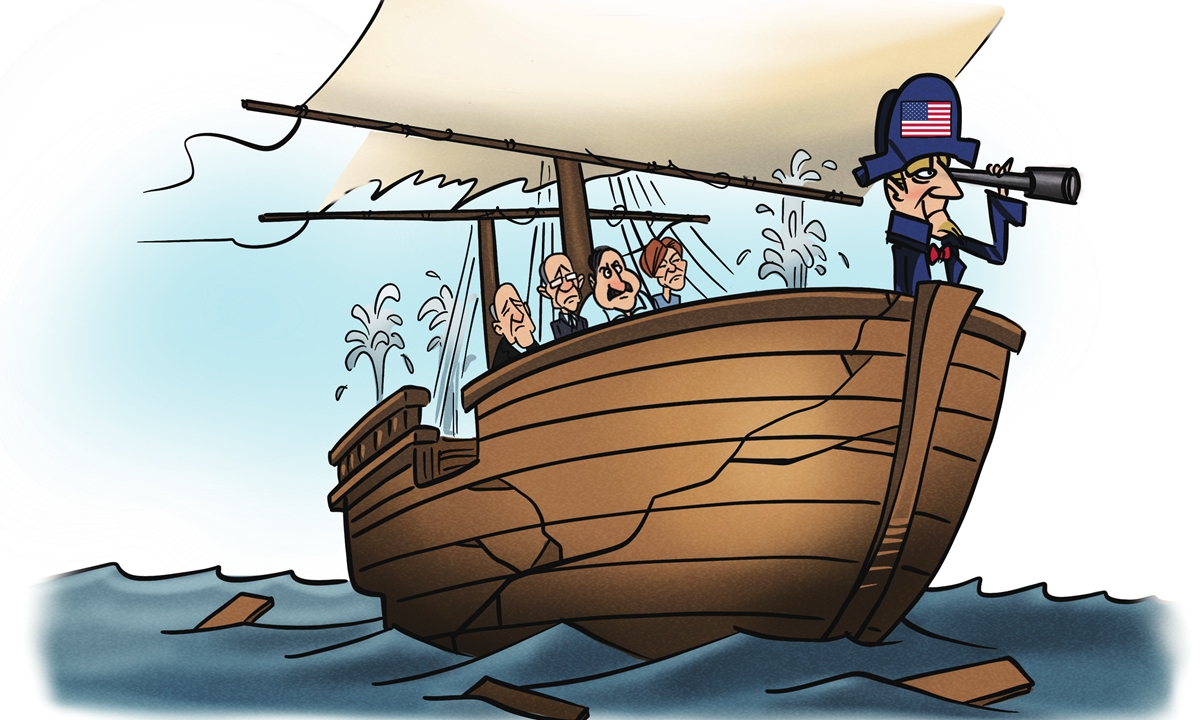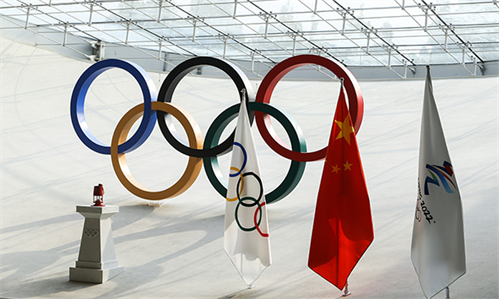
Illustration: Liu Rui/GT
Frederick Kempe, president of Washington-based think tank Atlantic Council, wrote recently that Indian External Affairs Minister Subrahmanyam Jaishankar told him the US is in a state of "strategic contraction." In my opinion, it is more precise to say that the US has entered a period of isolation again.In fact, the US was founded based on isolationism, and only after World War II did it actually become strong enough to dominate the postwar international order. Now, as the world enters a new era, it is difficult for the US to maintain its dominance as a unipolar power. The US is in a state of strategic contraction. Of course, the US will not completely abandon the alliance it forged during the Cold War, but Washington will increasingly use it as a tool to exercise its residual influence.
The debacle of the US war on terror that began in 2001 has taught the country a good lesson, which is that as its power declines, the US' ability to intervene in other countries' affairs has become quite limited. The US will continue to engage in global competition, but Washington will nevertheless focus more on protecting its own interests.
The resurgence of isolationism has led to the devaluation of the US alliance system. The Biden administration has been trying to save the system from falling apart completely and repair the rifts between the US and its allies and among its allies. But the Washington-led alliance has already become a "marriage of convenience," a term that the West likes to use to describe the relationship between China and Russia. In other words, the US and its allies now only stand together under certain specific circumstances.
Biden, on the surface, keeps showing that the US still cares about organizations like NATO. By doing so, Washington is trying to make European countries stand on a united front with it as much as possible.
If Europe suffers another crisis like the one after World War II, the US nowadays will never provide Europe with something like the Marshall Plan to help it. Similarly, if a European ally has conflicts with Russia, it is difficult for the US to give it any substantial assistance militarily apart from political support. The US may send key officials to visit the country. But asking for financial aid from the US? No way! Quite the opposite, Washington may even try to earn money from the country through arms sales.
The US can't make the alliance system work again as it used to, and building a new alliance will not be easy either. In less than one year since he took office, Biden has spared no effort in developing Quad and AUKUS. This has been done within the alliance only for immediate US interests, such as to sell weapons. Quad is like a salon or club for discussion that can hardly lead to any substantial results, while AUKUS is purely an arms deal packaged as a strategy. In this way, the US wants to show it is accountable to other countries. It was also a way to show France, "Look, even though I have stolen a submarine deal from you, it's all for a grand strategy."
With that being said, no matter how well the US tries to sugar up its real intentions, Washington's allies in Europe have already realized that the US can't be relied on in terms of security. They know that at some point they may even be choked by Washington. For instance, in the case of AUKUS, although France has claimed to be a close ally of the US, the US did not hesitate to stab France in the back, greatly damaging the latter's economic interests.
The US alliance system is definitely in a process of decline. It will be a slow process. It will also be a process of redistribution of international power. Over the years since 2001 we have already entered an early stage of the collapse of the US alliance. Perhaps in the next two decades, we may reach the middle stage of disintegration.
At the same time, countries like China and Russia will play a more important role in maintaining world peace. As for Europe, it will make more efforts to realize its strategic autonomy despite the difficulty of uniting. Consensus in Europe (at least between major European countries, such as Germany and France) will be reached further, and the pattern of "Europeans govern Europe" will become the direction of Europe's development. In general, I believe China and Russia as a bloc and Europe as a whole will play a greater role in the future.
The author is a research fellow at the Chinese Academy of Social Sciences. opinion@globaltimes.com.cn


